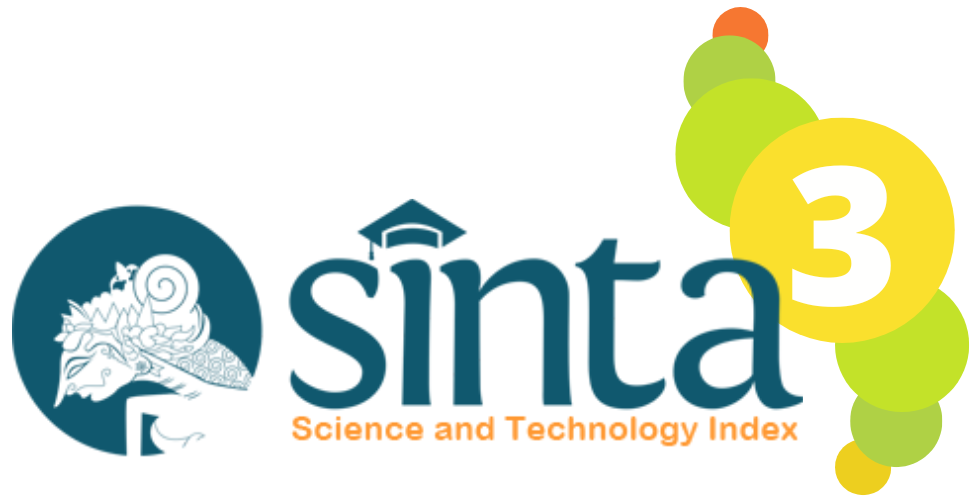The Implementation of Entrepreneurship Course in EFL Classroom Indonesian Higher Education Context
Sari
Kata Kunci
Teks Lengkap:
PDFReferensi
Albet Maydiantoro, A., Ridwan, Tusianah, R., Kusuma, A. R. P. T., Isnainy, C. A. S. U., & Zainaro, A. M. (2021) Entrepreneurship in Higher Education Curriculla: Evidence from Indonesia. Psychology and Education, 58, 936-949. https://doi.org/10.52046/edu.j.v2i2
Amalia, R. T., & Korfesch, H.F.O.V. (2021). Entrepreneurship education in Indonesian higher education: Mapping Literature from the Country's Perspective. Entrepreneurship Education, 4, 291-333. https://doi.org/10.1007/s41959-021-00053-9
Bharata, W. (2019). Pengaruh Pendidikan Kewirausahaan dan Motivasi Usaha terhadap Minat Berwirausaha (Studi pada Mahasiswa Fakultas Ekonomi Universitas Muhammadiyah Ponorogo). Jurnal Ekonomi dan Manajemen, 2, 99-113. http://doi.org/10.25273/capital.v2i2.3985
Blesia, J.U., Lek, M., Ratang, W., & Hutajulu, H. (2021). Developing an Entrepreneurship Model to Increase Students Entrepreneurial Skills: an Action Research Project in a Higher Education Institution in Indonesia. Syst Pract Action Res, 34, 53-70. https://doi.org/10.1007/s11213-019-09506-8.
Denzin, N. K., & Lincoln, Y. S. (Eds.). (2011). The SAGE handbook of qualitative research (4th Ed.). Sage.
Farashah, A. (2013). The Process of Impact of Entrepreneurship Education and Training on Entrepreneurship Perception and Intension: Study of Educational System of Iran. Education and Training. Emerald Publishing. Doi: 10.1108/ET-04-2013-0053
Garavan, T., Costine, P. & Heraty, N. (1995). Training and Development in Ireland, Context, Policy and Practice, Oak Tree Press, Dublin.
Garavan, T.N., & O'Cinneide, B. (1994), Entrepreneurship Education and Training Programmes: A Review and Evaluation's Part 1. Journal of European Industrial Training, 18, 3-12. https://doi.org/10.1108/03090599410068024.
Gay, L. R., Mills, G. E., & Airasian, P. W. (2009). Educational Research: Competencies for Analysis and Applications, Student Value Edition. Upper Saddle River, NJ: Merrill.
Ghina, A. (2014). The effectiveness of Entrepreneurship Education in Higher Education Institusion. The 5th Indonesian International Conference on Innovation entrepreneurship, and small Business. Procedia-social & behavioral Sciences, 155, 332-345. 10.1016/j.sbspro.2014.02.440
Henry, C. Hill, F. & Leitch, C. (2005). Entrepreneurship education and training: can entrepreneurship be taught? Part I, Education + Training, 47, 98-111. https://doi.org/10.1108/00400910510586524
Hynes, B. (1996). Entrepreneurship Education and Training Introducing Entrepreneurship into Nonbusiness Disciplines. Journal of European Industrial Training, 20, 10-17. https://doi.org/10.1108/03090599610128836
Irawanto, W. D., & Novianti, R. K. (2021) Entrepreneurship Education in Higher Education: Optimizing Innovative Behaviour of Z Generation. Indonesian Journal of Business and Entrepreneurship, 7, 11-17. http://dx.doi.org/10.17358/IJBE.7.1.11
Isaacs, E. Visser, K. Friedrich, C. & Brijlal, P. (2007). Entrepreneurship education and training at the Further Education and Training (FET) level in South Africa. South African Journal of Education, 27, 613-629. 10.15700/201409161038
Kusumojanto, D. D., Wibowo, A., Kustiandi, J., & Narmaditya, S. B. (2021). Do Entrepreneurship Education and Environment Promote Students' Entrepreneurial intention? The role of entrepreneurial attitude. Cogent Education, 8, 1-16. DOI: 10.1080/2331186X.2021.1948660
Rafiana, N., Nand. (2023). Technopreneurship Strategy to Grow Entrepreneurship Career Options for Students in Higher Education. ADI Journal on Recent Innovation, 5, 110- 126. https://doi.org/10.34306/ajri.v5i2.995
Ramayah, T., Ahmad, N. H., & Char Fei, T. H. (2012). Entrepreneur Education: Does Prior Experience Matter? Journal of Entrepreneurship Education, 15, 65-81
Rosyanti & Irianto, A. (2019). Pengaruh Pendidikan Kewirausahaan dan Lingkungan Keluarga Terhadap Motivasi Berwirausaha Mahasiswa Jurusan Pendidikan Ekonomi Universitas Negeri Padang. EcoGen, 2, 587-595. https://ejournal.unp.ac.id/students/index.php/pek/article/view/7451/3446
Saraka, (2020). Kewirausahaan Pendidikan Bahasa Inggris Berbasis Pendidikan Luar Sekolah. Pandeyan, Umbulharjo, Yogyakarta.
Setiawan, T. G., & Lestari, D. E. (2021) The Effect of Entrepreneurship Education to Student's Entrepreneurial Intention with Self-Efficacy as Mediating Variable. DeReMa (Development Research of Management) Jurnal Manajemen, 16, 158-178. 10.19166/derema.v16i2.3884
Smith, W., & Chimucheka, T. (2014). Entrepreneurship, Economic Growth and Entrepreneurship Theories. Mediterranean Journal of Social Sciences, 5, 160 168.https://doi.org/10.5901/mjss.2014.v5n14p16.
Toma, S. D., & Rasul, H.T. (2023). Exploring EFL Students' Perspectives on the Implementation of Content Based Instruction for Improving English Language Skills in Entrepreneurship Education Module. ZANCO Journal of Humanity Sciences 27, 231-240. https://doi.org/10.21271/zjhs.27.4.16
Valerio, A. Parton, A. Robb, A. (2014). Entrepreneurships Education and Training Program around the World Dimensions for Success. The World Bank: Washington D. C.
DOI: https://doi.org/10.33387/j.edu.v22i2.8702
Refbacks
- Saat ini tidak ada refbacks.
| Journal Name | Jurnal Edukasi |
| Print ISSN | 1978-6115 |
| Elektronik ISSN | 2597-9213 |
| Publisher | Fakultas Keguruan dan Ilmu Pendidikan (FKIP) Universitas Khairun |
| Address | Jalan Bandara Sultan Baabullah Kampus I Unkhair, Kelurahan Akehuda, 97728 Kecamatan Kota Ternate Utara, Provinsi Maluku Utara |
| Country | Indonesia |
| j.edukasi@unkhair.ac.id / edukasi2019@gmail.com | |
| URL | https://ejournal.unkhair.ac.id/index.php/edu/index |
| DOI | http://doi.org/10.33387/edu |
Indexed By:
-----------------------------------------------------------------------------------------------------------------------------------------------------------------------------

EDUKASI is licensed under a‚ Creative Commons Attribution-NonCommercial 4.0 International License.












